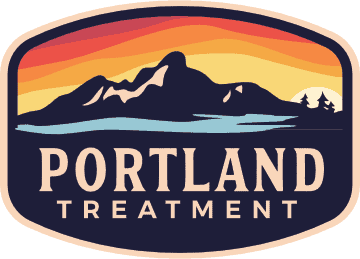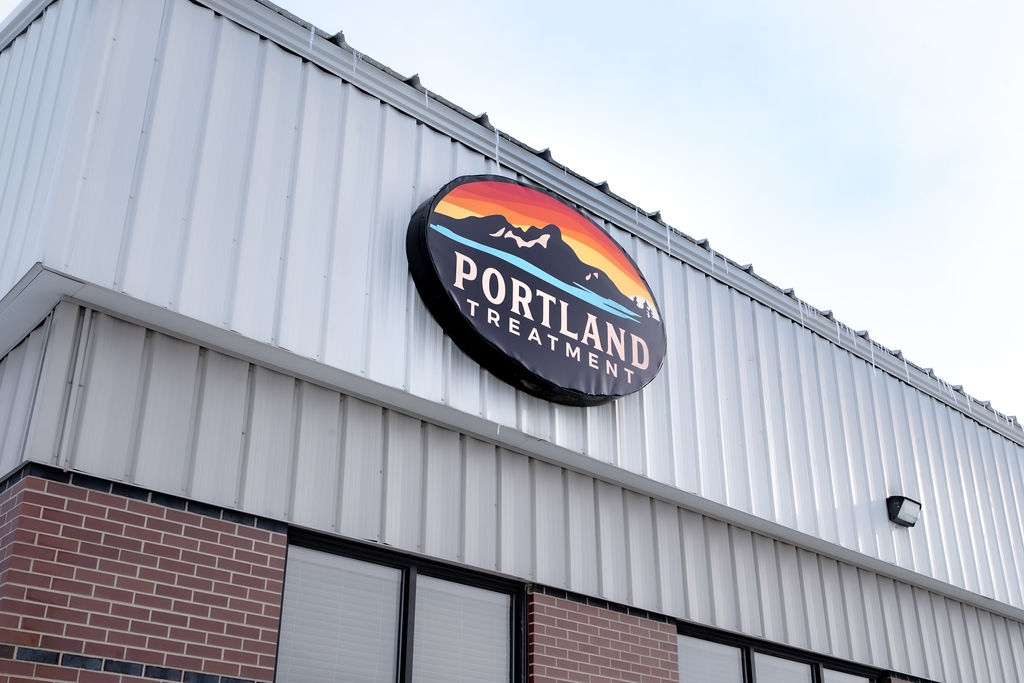Intensive Outpatient Program (IOP)
Flexible, Comprehensive Care for Lasting Recovery
At Portland Treatment Center, our Intensive Outpatient Program (IOP) near Portland, Maine, is designed for individuals who want high-quality treatment while balancing work, family, or school responsibilities. Whether you’re stepping down from a more intensive program or seeking structured support for moderate substance use challenges, our IOP gives you the flexibility and resources to continue your daily life while progressing toward sustained sobriety.
What Is an Intensive Outpatient Program (IOP)?
An IOP is a structured treatment option that allows you to live at home—or in sober living housing—while attending scheduled therapy sessions several days a week. It falls between a Partial Hospitalization Program (PHP) and traditional outpatient care, making it ideal for those who:
- Have completed a residential or PHP program and need continued support.
- Require more structure than standard outpatient care offers.
- Have significant responsibilities—such as employment, education, or family duties—that prevent them from entering a more intensive program.
IOPs typically last 8–12 weeks, but we tailor the exact length and schedule based on your unique recovery needs. During this time, you’ll engage in about 9–15 hours of weekly therapy, counseling, and skill-building activities.
A Tailored Approach to IOP Treatment in Maine
Portland Treatment Center prioritizes a commitment to providing an individualized and highly customized approach to our Intensive Outpatient Program (IOP), which is characterized by its unwavering dedication to tailoring treatment to meet the specific and unique needs, challenges, and aspirations of each individual who chooses to embark on the journey to recovery with us. We firmly believe that one size does not fit all when it comes to addiction treatment, and as such, we place an immense emphasis on conducting an extensive and comprehensive assessment for every participant upon their entry into the program.
This thorough assessment process serves as the cornerstone upon which we build a meticulously crafted treatment plan that is specifically designed to address the nuanced and distinctive aspects of your situation. By taking into consideration your personal circumstances, preferences, and goals, we ensure that every aspect of the treatment process is aligned with your individual journey toward recovery. In doing so, we create a treatment program that truly resonates with you and your unique story, thereby significantly enhancing the likelihood of a successful and sustainable recovery.
Our commitment to personalization does not end with the initial assessment and treatment plan. We understand that addiction is a complex and multifaceted challenge, and therefore, our highly qualified and compassionate team of professionals continually adapts your treatment as your progress and needs evolve. Our dedication to providing a tailored and flexible approach is a testament to our unwavering commitment to your well-being and recovery journey.
In summary, at Portland Treatment Center, we believe that a one-of-a-kind path to recovery is the most effective one. By beginning your IOP in Maine with a personalized assessment and treatment plan, and then maintaining a commitment to individualized care throughout your journey, we are here to support you in achieving a successful recovery that is uniquely yours.
Why Choose Our IOP in Maine?
- Flexible Scheduling
- We recognize you have personal, professional, or family commitments. Our IOP offers daytime or evening sessions to help you maintain a balanced lifestyle without compromising your treatment.
- Holistic & Evidence-Based Therapies
- Benefit from both evidence-based approaches (like Cognitive Behavioral Therapy, group counseling, and family therapy) and holistic modalities (yoga, art therapy, mindfulness) that nurture physical, emotional, and spiritual well-being.
- Tailored Treatment Plans
- One size does not fit all. We conduct a thorough assessment before enrollment, crafting a personalized plan to address the root causes of addiction or mental health concerns. Your progress is closely monitored and adjusted as needed.
- Supportive Community & Licensed Professionals
- Our experienced team of therapists, counselors, and medical professionals works together to ensure you receive coordinated care. Plus, you’ll join a peer community committed to helping one another achieve lasting recovery.
- Medication & Mental Health Support
- For those with co-occurring mental health issues, we provide medication management and therapy to stabilize symptoms, address underlying trauma, and develop coping mechanisms for long-term well-being.
- Cost & Insurance Assistance
- We accept various insurance plans and have dedicated staff to help you verify benefits or explore payment options. Financial concerns should never be a barrier to getting the support you need.
Core Components of Our IOP
- Individual Counseling
Meet regularly with your personal therapist to set goals, unpack triggers, and learn coping strategies that foster resilience. These sessions also help you track progress and make adjustments to your treatment plan. - Group Therapy
Connect with peers who share similar challenges. In facilitated groups, you’ll exchange experiences, build social support, and sharpen communication skills. Some groups may follow 12-step principles, while others focus on relapse prevention or life skills. - Family Therapy & Education
Substance misuse can strain relationships. We involve loved ones through family therapy sessions and educational workshops, helping them understand addiction dynamics and learn effective ways to provide support at home. - Holistic Therapies
We believe in a mind-body-spirit approach, supplementing traditional treatments with holistic options:- Yoga Therapy: Develop body awareness, manage stress, and promote relaxation.
- Art Therapy: Express and process complex emotions creatively.
- Mindfulness & Meditation: Cultivate emotional regulation and reduce anxiety.
- Life Skills & Aftercare Planning
Sustainable recovery demands practical skills—time management, communication, stress reduction—so you can thrive after IOP. We also help you develop a personal aftercare plan, which may include continued outpatient therapy, alumni support groups, or additional community resources.
Is IOP Right for You?
Consider our Intensive Outpatient Program if you:
- Need a structured approach without committing to 24/7 residential care.
- Can benefit from professional counseling while maintaining a job, attending school, or caring for family.
- Seek ongoing accountability and peer support but prefer to live at home or in a sober living environment.
- Have completed a Partial Hospitalization Program (PHP) or another higher level of care and are ready to step down gradually.
If you’re unsure whether IOP is the best fit, contact our admissions team. We’ll evaluate your clinical needs, discuss your treatment history, and recommend a level of care aligned with your goals.
Your Recovery Journey with Portland Treatment Center
- In-Depth Assessment
We start with a full clinical evaluation, exploring medical history, substance use patterns, mental health status, and personal goals. - Customized Program Design
Drawing from assessment results, we map out an individualized roadmap incorporating the right blend of therapies, group sessions, and skill-building workshops. - Active Participation
Once enrolled, you’ll attend scheduled sessions each week. The exact hours and days vary, but typically involve group therapy, individual counseling, and optional sessions like family therapy or art therapy. - Regular Progress Reviews
Our multidisciplinary team meets often to assess your development. If certain therapies resonate more strongly, or if your needs change, we’ll adjust your plan to optimize results. - Transition & Aftercare
As you approach the end of IOP, we collaborate with you on next steps—whether that’s stepping down to an Outpatient Program (OP), joining alumni support groups, or reinforcing new coping mechanisms at home.
Begin Your IOP Journey in Maine
At Portland Treatment Center, we believe in empowering you to create a life free from the constraints of addiction. Our Intensive Outpatient Program (IOP) is a practical, compassionate bridge between intensive residential treatment and independent living—offering structured support in a setting that respects your daily obligations.
If you’re ready to learn more about our IOP near Portland, Maine—or need guidance on the right care for your situation—contact us. Together, we’ll chart a course toward renewed health, resilience, and hope.
Frequently Asked Questions
What is Inpatient Detox?
The European languages are members of the same family. Their separate existence is a myth. For science, music, sport, etc, Europe uses the same vocabulary. The languages only differ in their grammar, their pronunciation and their most common words. Everyone realizes why a new common language would be desirable: one could refuse to pay expensive translators.
Inpatient vs. Outpatient Detox
To achieve this, it would be necessary to have uniform grammar, pronunciation and more common words. If several languages coalesce, the grammar of the resulting language is more simple and regular than that of the individual languages. The new common language will be more simple and regular than the existing European languages.
What Happens During Inpatient Detox?
It will be as simple as Occidental; in fact, it will be Occidental. To an English person, it will seem like simplified English, as a skeptical Cambridge friend of mine told me what Occidental is.The European languages are members of the same family. Their separate existence is a myth. For science, music, sport, etc, Europe uses the same vocabulary. The languages only differ in their grammar, their pronunciation and their most common words. Everyone realizes why a new common language would be desirable: one could refuse to pay expensive translators.
How Long Does Inpatient Detox Take?
The European languages are members of the same family. Their separate existence is a myth. For science, music, sport, etc, Europe uses the same vocabulary. The languages only differ in their grammar, their pronunciation and their most common words. Everyone realizes why a new common language would be desirable: one could refuse to pay expensive translators.

